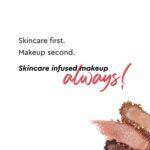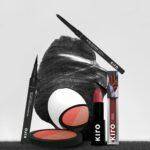Table of Contents
Do you have a daily skin care routine? Or do you just fall asleep each night without worrying about what is on your skin?
Skin is one of the largest organs of the human body, and it works hard every day to protect our bodies from harmful elements. Did you know that our skin cells shed just about every minute of every day? This means the glowing skin you have today will be shedding tomorrow, so if you don’t care for it now, you could lose it to unhealthy, less than perfect skin. Isn’t that reason enough to develop a skin care regimen? Taking care and developing a daily skin care routine at home is important, because studies show that those who follow a routine of washing their face in the morning and at night are more likely to make healthier choices throughout their day.
Where do I start with skincare?
Great skin is not simply a matter of DNA but your daily habits. Ultimately, caring for your skin is simply personal. The technology behind the best skin care products have come a long way but there’s still no such thing as an instant fix. Results are only seen through consistent use. The thumb rule being, with any skin care product, apply in order of consistency — from thinnest to thickest. For example, cleanser, toner, serum, and then moisturizer.
As part of your skin care routine steps, cleansing is the first. You need a cleanser to wash off the dirt, makeup, dead skin cells and excess oil, that naturally end up on your face throughout the day. Clean your face twice a day. Avoid washing for that squeaky-clean feeling because it will strip out your skin’s natural oils. Gentle face washes and pore cleaners are the way to go.
Remember, that there are three important face cleansing steps. Begin with a splash of comforting warm water, massage your face gently with a cleanser in a circular motion focussing on your T Zone, jawline and hairline. Keep massaging for at least 30 seconds to ensure clean and clear skin.
Makeup removers are an important part of a clear skin routine. Your skin goes through its most important regenerative processes at night, shedding away dead skin cells and making way for new ones. Makeup obstructs that natural exfoliation process, so your skin becomes dull over time – a major factor standing between you and great skin. Hence, removing makeup before bed is an important step in your night skin care routine. Micellar water, cleansing balms or super easy to use make-up removal wipes are some of the best facial cleansers available.
Have you heard of double cleansing? Dermatologists also recommend you first clean your face with an oil-based cleanser to remove make-up and grime, and then use a gentle water-based cleanser or scrub to truly clean your skin.
Why is moisturizing so important?
The most basic function of a moisturizer is to soften and hydrate the skin. This is one product that dermatologists recommend using throughout the year as part of your skin care steps. Skin naturally loses the ability to retain moisture as we age. So, a skincare moisturizer keeps you hydrated and helps strengthen your skin barrier. While a moisturiser is for everyone, the texture of your moisturizer will differ depending on your skin type. For day use, opt for a lighter moisturizer that will soak in quickly. A good moisturizer for oily skin is one that is lightweight, gel-based, or doesn’t block your pores. Dry skin may benefit from more cream-based moisturizers.
Acne can cause skin to feel oily and greasy, so a moisturizer may be the last thing you’d think of trying. However, it may be just what you need. If you are undergoing treatments, using a moisturizer every day can help your skin tolerate these medications. To prevent a moisturizer from causing breakouts, look for descriptors like oil-free, non-comedogenic and one that won’t clog pores.
Sunscreen – A crucial skin-care product
It’s of utmost importance as part of your year-round regimen. Daily and consistent sunscreen use helps to prevent the development of fine lines and wrinkles. More importantly, daily sunscreen use can help reduce certain skin cancers. Experts recommend using a daily moisturizer with a built-in 30 SPF broad spectrum, the best sunscreen for normal skin. Apply 30 minutes before sun exposure, and reapply every two hours.
With more hours being spent indoors due to the Covid-19 pandemic, sunscreen remains an essential part of every morning routine, even when working from home. Avoiding direct sunlight doesn’t mean your skin is safe. Even if you’re away from a window, the screen you’re staring at emits UVA or aging rays that can have an impact on your complexion. Visible light, particularly blue light, is a contributor to hyperpigmentation, so protecting our skin is still just as important as ever.
Use and benefits of face oils
Known as a pure and natural way to improve your skin, botanical facial oil loaded with plant and farm-fresh extracts have disrupted the mainstream market. Facial oils hydrate without leaving a greasy residue.
Jojoba oil is incredibly light-weight and easily gets absorbed into the skin without blocking pores. It’s Vitamin E and B complex content makes it anti-inflammatory, a great repair for blemishes and redness. You can even use jojoba oil for skin that is prone to acne.
The antibacterial properties of tea tree oil soothe skin, treat acne and unclog pores. With powerful skin purifying properties, it effectively targets blemishes and removes impurities.
Argan oil is said to be the best oil for skin, if you are looking for smoothing fine lines and wrinkles. This oil contains a high concentration of Vitamin E and fatty acids, which are stable in sunlight and can be worn even during the day.
Serums – Friendlies for your skin
The main difference between using serum products and facial oils is that oil molecules can only penetrate the outermost layers of the skin and infuse a hydration boost. Serums, on the other hand, help to repair or protect your skin from varying concerns, such as acne, aging and hyperpigmentation. Serums are powerful skin buddies filled with concentrated doses of active ingredients.
These serum ingredients can help resolve a number of issues, from dark spots to wrinkles. Hyaluronic acid helps in sealing in hydration and prevents moisture loss. Vitamin C serums are great to brighten dull skin and decrease dark spots. While retinol serums, Vitamin B3 and peptides help prevent lines and skin sagging.
The importance of using eye cream
If you have dark circles, puffiness, or crow’s feet, using an eye cream as part of your skin care regimen may help reduce the appearance of your under-eye concerns. The skin surrounding your eyes is actually quite a small area, so, a pea-sized amount of eye cream should be enough. Just as you should cleanse your skin and moisturize twice a day, you should also apply your eye cream in the morning and as part of your night skin care routine steps.
Not all eye creams solve all concerns, hence, it is advisable to use specific creams for specific concerns. An under eye cream full of anti-aging powerhouses like retinol or vitamin C can help reduce fine lines and dark circles. Dark circles can be due to visible veins or actual discoloration common in darker skin tones. Look for brightening ingredients like Vitamin C to see a change. For undereye bags and inflammation, caffeine, peptides and hyaluronic acid can be soothing.
Add a skincare routine to your other healthy living practises. This can include oral care as well as hair and scalp routines. Do them all together so you can look and feel great!


